Kurds Displaced from Diyala Vow to Vote in Iraq Election to Reclaim Political Voice
Displaced Kurds from Diyala vow to return to their homes on election day to vote, seeing it as a last stand against political marginalization and Arabization.
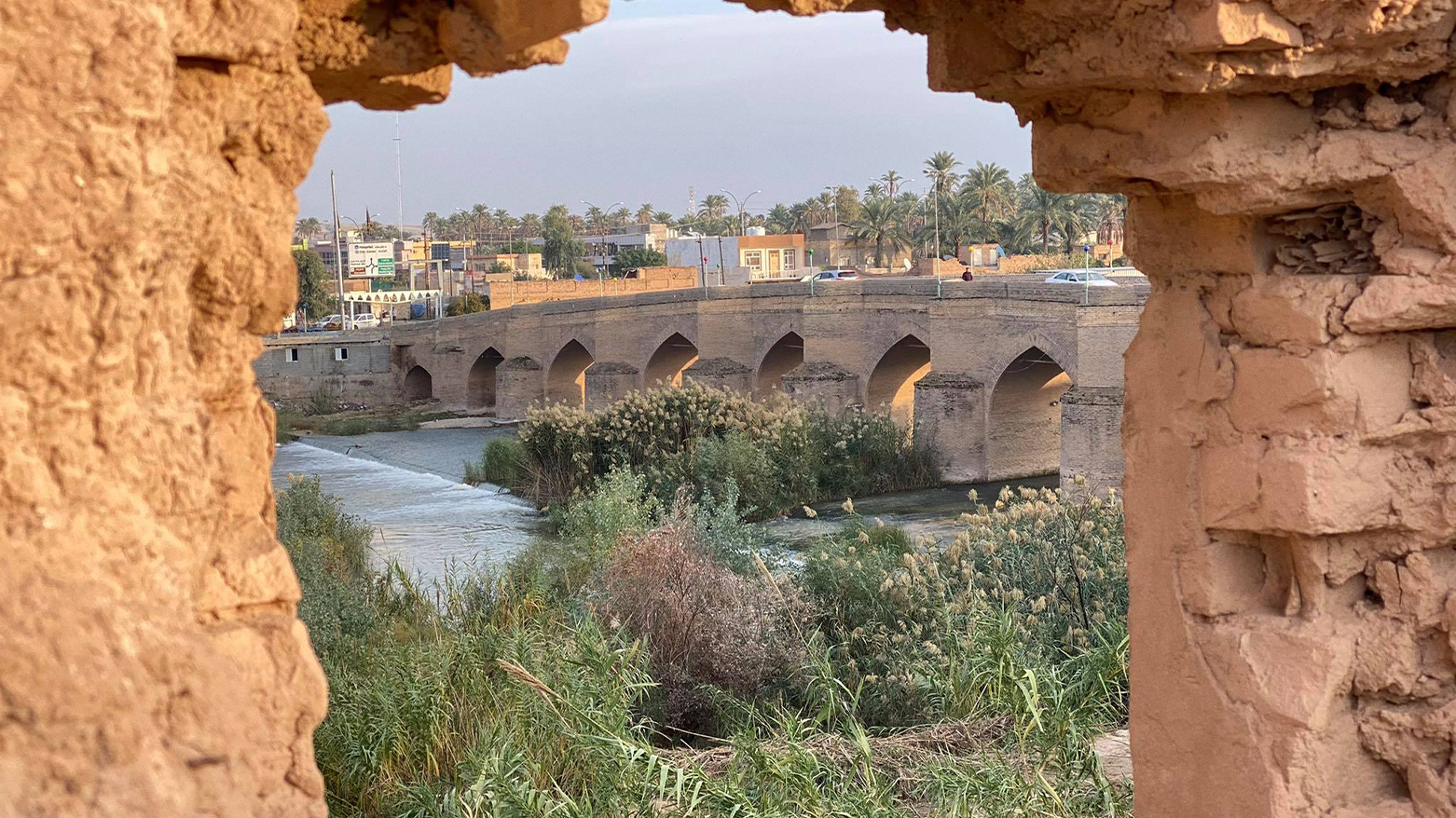
ERBIL (Kurdistan24) – In a powerful display of resilience and political determination, hundreds of Kurdish families displaced from the Kurdistani territories within the province of Diyala are preparing to make a momentous journey back to their ancestral lands, not to resettle, but to cast a ballot in Iraq's upcoming parliamentary election.
For these families, driven from their homes in the tumultuous aftermath of the Oct. 16, 2017 events, the act of voting has transcended a civic duty; it has become a crucial battle for their very existence and a defiant stand against what they describe as a systematic campaign of political marginalization, demographic engineering, and cultural suppression orchestrated by successive federal governments in Baghdad.
Their collective voice carries a single, urgent message: the only path to improving their dire situation and defending their land is to elect true representatives who can champion their cause in the corridors of power.
"If we want our situation to improve and to return to our place, then we must come and cast our votes."
This determination is embodied by individuals like Nuri Mohammed, who, after several years of displacement, recently returned to his home region in Diyala not just to visit, but to actively mobilize his community.
He has been tirelessly campaigning, putting up pictures of the Kurdistan Democratic Party (KDP) candidate, driven by a conviction that the success of a strong Kurdish voice in Baghdad is their last, best hope.
"Kurds must impose their voice, color, and place here," Nuri told Kurdistan24 amidst his campaign efforts. "We cannot just watch here from afar because it is our own land."
His words capture the sentiment of an entire community on the brink, framing the election as an existential imperative. "If we want our situation to improve and to return to our place, then we must come and cast our votes," he declared.
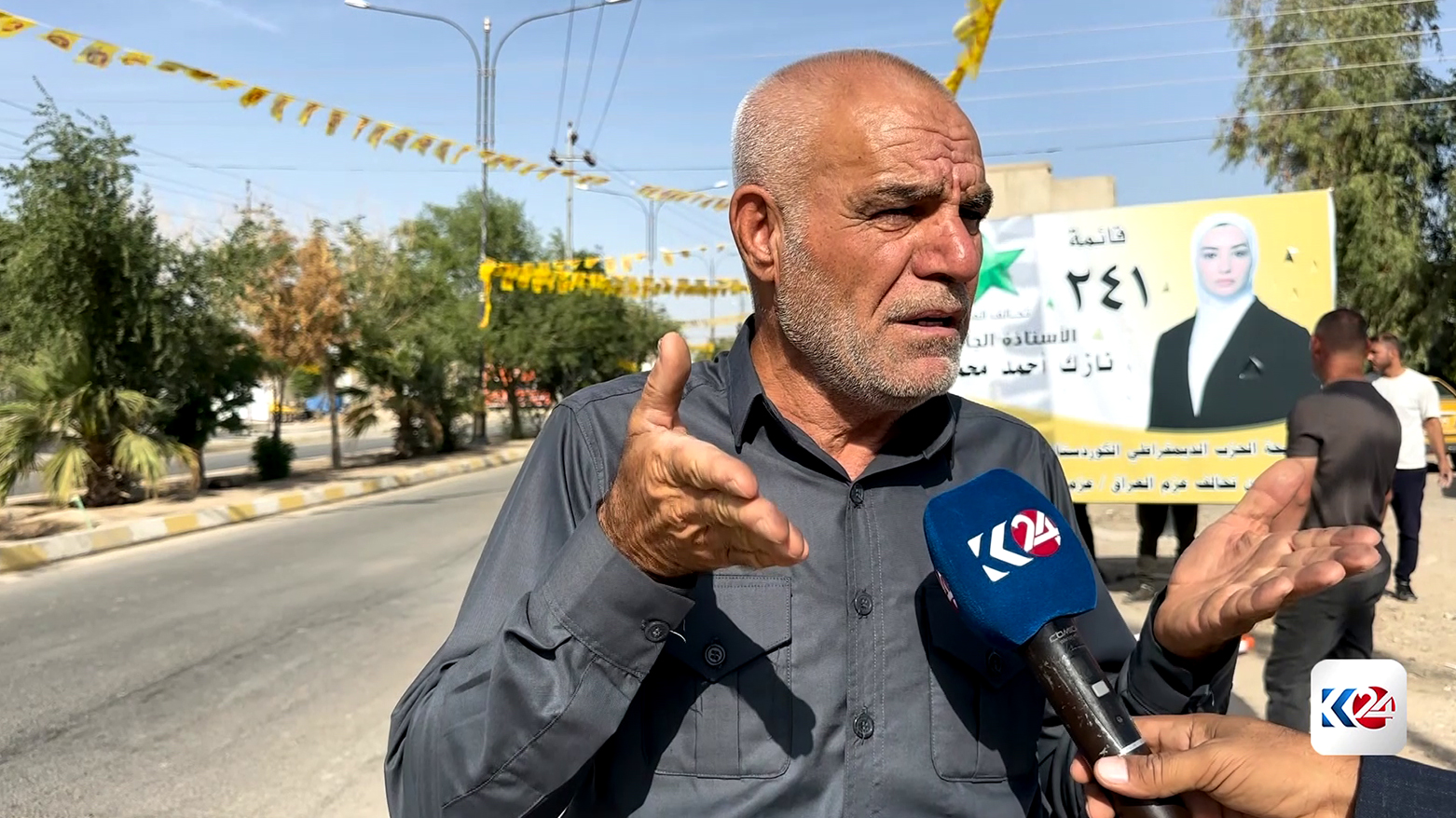
The urgency of this electoral mobilization is born from a stark and painful reality. The events of Oct. 16, 2017, when Iraqi forces and Iran-backed militias took control of Kirkuk and other Kurdistani territories following the Kurdistan independence referendum, marked a catastrophic turning point for the Kurds of Diyala.
In the years since, they have witnessed a systematic and devastating erosion of their political influence and security. According to local accounts, the Iraqi government has steadily taken back most of the administrative, security, and managerial posts that were once held by Kurds.
The security vacuum and targeted intimidation have been so severe that an estimated forty Kurdish-inhabited villages have been completely evacuated, their residents fleeing to the relative safety of the Kurdistan Region.
Mohammed Mahmoud, another citizen preparing for the vote, painted a bleak picture of the demographic shift that has occurred. "After the betrayal of Oct. 16th, the Kurds in these areas have become a minority, meaning their percentage in this area does not exceed 2 percent," he explained.
This dramatic decline from a once-dominant presence underscores the scale of the challenge. "Therefore, we call on our people who are not here now to return on election day and cast their votes," he implored. "Also, vote for the candidate who will truly represent this area and go to the Iraqi parliament and be a good defender of our rights."
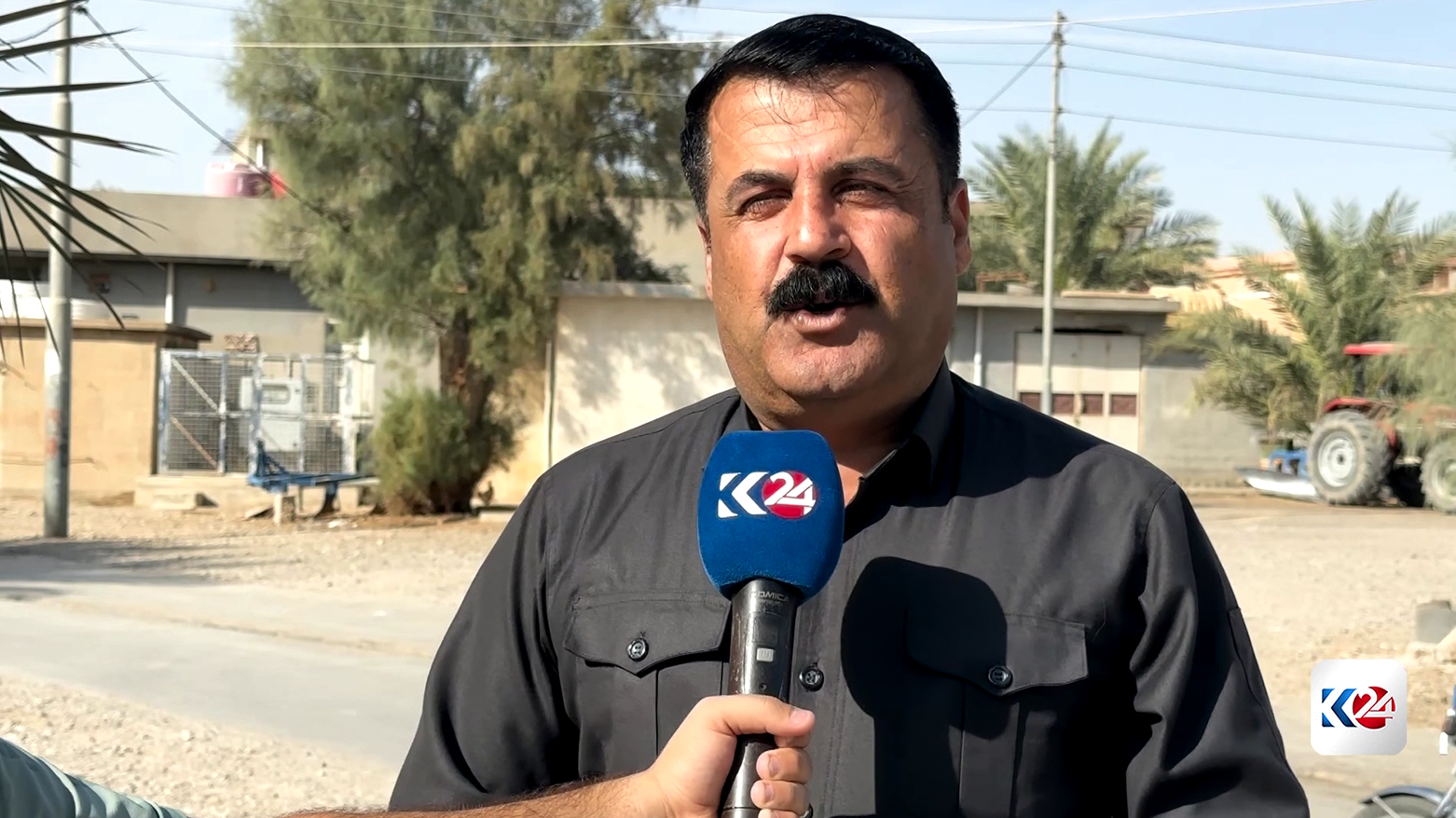
The political backsliding has been precipitous. Akbar Haider, the head of the KDP's 15th branch in Khanaqin, warned in Aug. 2024 of the dire consequences of this diminishing influence. "Since 2003, Khanaqin has consistently represented the voice of the Kurdistan Alliance and Kurdish parties in every election held in Iraq. However, the situation has drastically changed," Haider told Kurdistan24.
He detailed a collapse in representation, noting that from holding six seats on the Diyala Provincial Council, along with the powerful positions of council speaker and deputy governor, the Kurdish presence has dwindled to just a single seat following the December 2023 elections.
This has fueled fears that even the position of Diyala's governor could be stripped from the Kurds, as Sunni and Shiite blocs reportedly reach agreements to divide all administrative posts among themselves, effectively sidelining the Kurdish component. "There is a fear that Kurds will be marginalized in Diyala and Khanaqin, treated as a minority despite constituting 95% of the population [in areas like Khanaqin]," Haider warned.
This political marginalization is being actively cemented by what many Kurdish leaders view as a deliberate state policy to revive the Ba'athist-era strategy of Arabization.
A recent decision by Iraq's Ministry of Planning to upgrade the subdistrict of Qaratapa to a full district, while simultaneously merging the predominantly Kurdish subdistricts of Jabara, Koks, and Kulajo into it, has been met with unified condemnation from Kurdish parties.
They see the move as a thinly veiled attempt to gerrymander the administrative boundaries to dilute the Kurdish majority in the vital Khanaqin district.
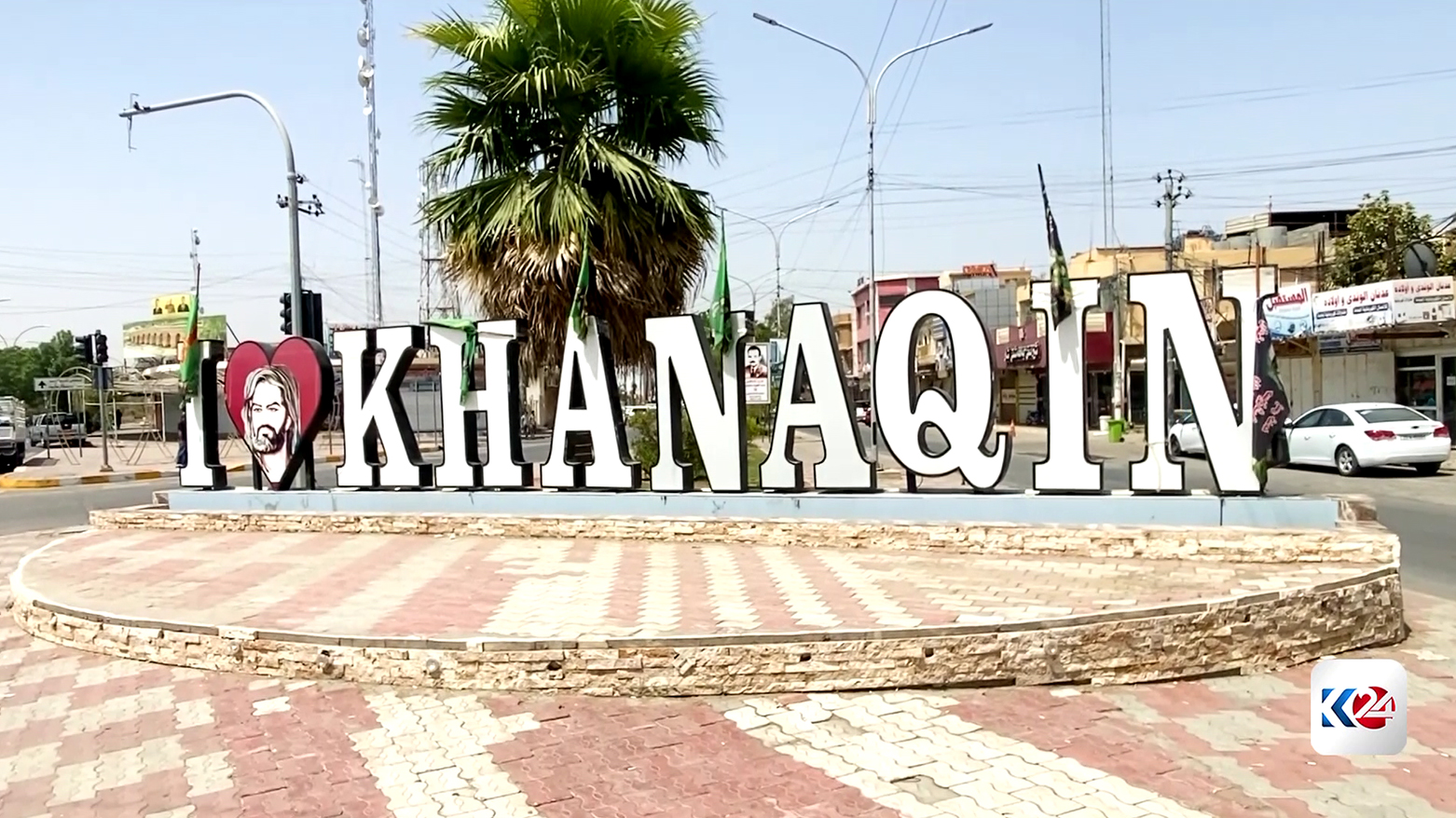
Karwan Yarwais, a Patriotic Union of Kurdistan (PUK) lawmaker, fiercely criticized the decision in July 2025 as unconstitutional and a clear violation of Article 140, which prohibits changing the boundaries of Kurdistani areas until their final status is resolved. "These areas are protected under Article 140," Yarwais stated, as reported by The New Region.
"Changing their administrative borders is not allowed until the article is fully implemented." He called on Prime Minister Mohammed Shia al-Sudani to cancel the decision, asserting, "The real goal behind this move is to continue the Arabization and displacement policies."
A subsequent meeting of Kurdish parties at the PUK's Khanaqin headquarters, reported by Shafaq News, reaffirmed this unified opposition, describing the decision as a political move aimed at "undermining the Kurdish presence and weakening Khanaqin’s administrative cohesion."
The campaign against the Kurdish presence in Diyala extends beyond administrative maps and into the very cultural fabric of the community.
In a move widely seen as a violation of the Iraqi constitution, which recognizes Kurdish as an official language, the Ministry of Higher Education in Baghdad in July 2025 banned Kurdish-speaking students at the universities of Kirkuk, Mosul, and Diyala from answering exam questions in their native tongue.
This reversed a long-standing 2010 policy that had provided a necessary bridge for students from the Kurdish education system. The directive, which threatens non-compliant universities with legal action, places Kurdish students at a severe academic disadvantage and is viewed by many as a political tool to marginalize Kurdish cultural identity in these contested territories.
This systemic neglect is not confined to the political and cultural spheres; it is devastating the daily lives and livelihoods of the people on the ground.
Diyala, once celebrated as one of Iraq’s green lungs, is watching its historic orchards, particularly in Khanaqin, wither and die. As reported by Kurdistan24, a combination of acute climate change, severe water scarcity, and the economic pressure of cheap imported produce is forcing farmers to abandon their lands.
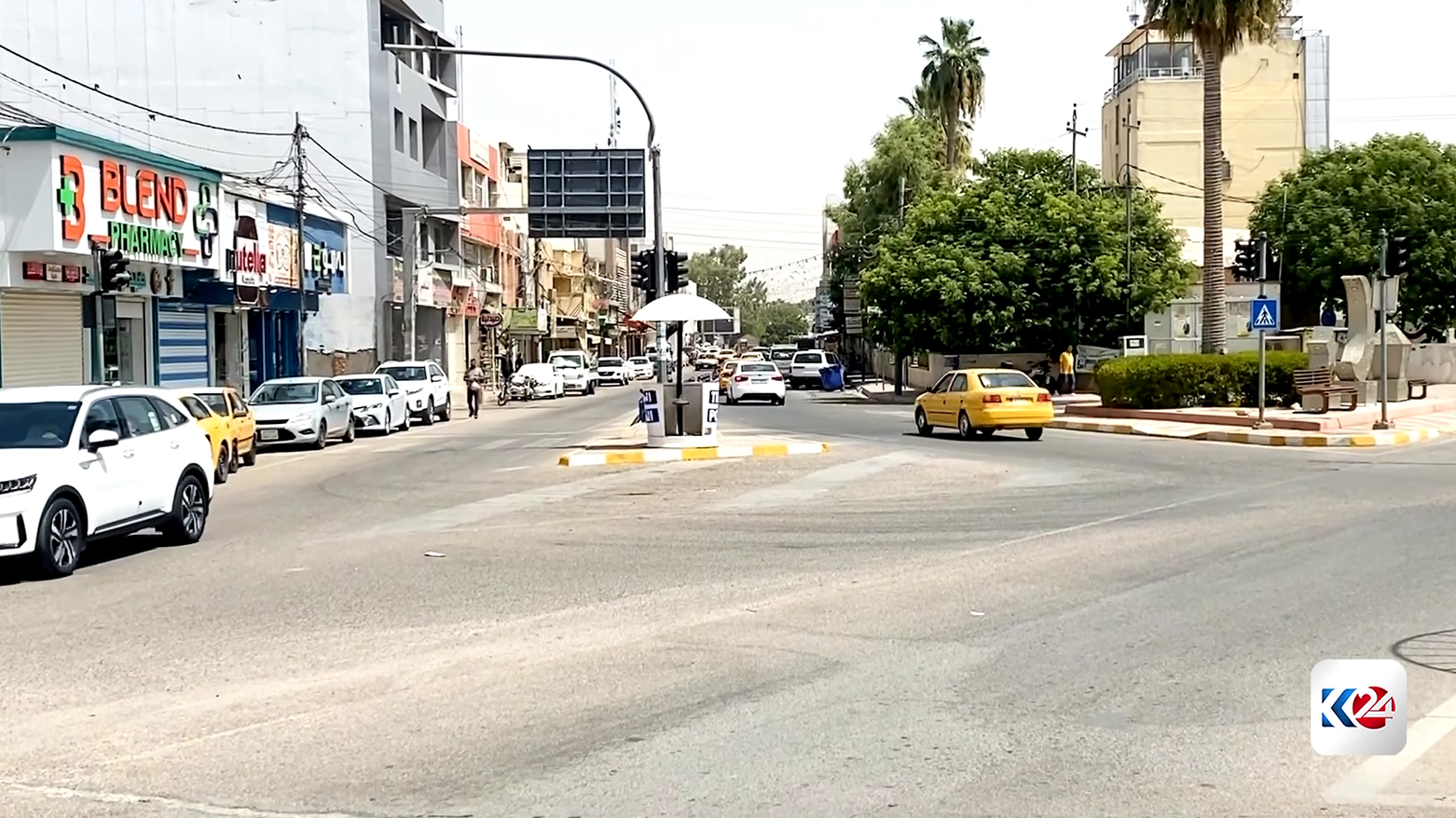
"This orchard is over 70 years old, but it’s no longer what it used to be. We now rely solely on well water," orchard owner Mohammed Ahmed shared with distress. The collapse of agriculture is fueling a rural exodus and, as environmental activist Sarbast Barzoo warned, is directly contributing to a noticeable rise in local temperatures as the vital green cover diminishes.
Compounding this economic and environmental crisis is a catastrophic failure in basic service delivery. Salah al-Tamimi, an Iraqi MP from Diyala, raised the alarm in April 2025 over "clear inequality" in electricity distribution, revealing that the province receives only 600 megawatts of power, far below the 1,100 megawatts it was promised.
The result for residents is a punishing cycle of "one hour of electricity, three hours of blackout," totaling no more than six hours of power per day, while other Iraqi provinces reportedly enjoy up to 20 hours of continuous electricity. This chronic power shortage in a province enduring soaring summer heat is a daily, tangible reminder of the government's neglect.
It is within this crucible of immense pressure—political disenfranchisement, demographic manipulation, cultural suppression, economic collapse, and a near-total absence of basic services—that the Kurds of Diyala are placing their hopes in the power of the ballot box.
They are facing a campaign that appears designed to make life in their homeland untenable, to erase their political footprint, and to silence their cultural voice. From being barred from reopening their party headquarters in their own towns, as detailed by Shafaq News, to having their children's educational future jeopardized by language bans, the message from the state has been one of consistent antagonization.
The upcoming election, therefore, is not about incremental political gains; it is a referendum on their future, a unified effort to send a clear message that despite the immense hardships, they will not be erased from their historic homeland.